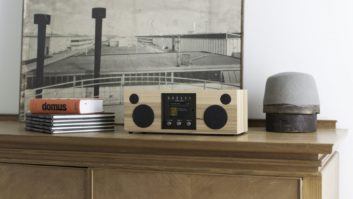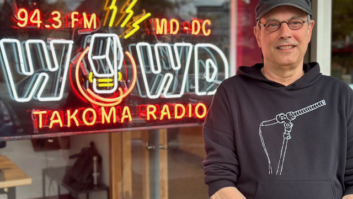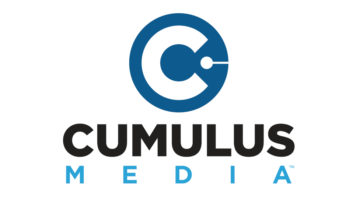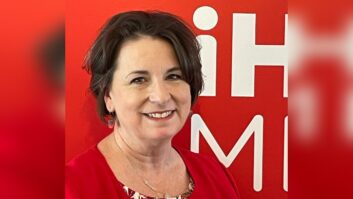A 2007 on-air radio contest that went terribly awry is still making headlines.
Now at issue are questions of character qualifications for a broadcast licensee — and whether the former owner of a competitor station should have a voice in calling for Entercom stations in Sacramento to be moved off the air.
It was back in 2007 that Entercom station KDND(FM) in Sacramento, Calif., held an on-air water drinking contest after which a woman participating in that contest, Jennifer Strange, ultimately died from water intoxication. After a wrongful death lawsuit was brought against station owner Entercom by her family, a jury awarded the survivors of Jennifer Strange $16.5 million in monetary damages and found that Entercom Sacramento LLC was at fault for Strange’s death.
As part of those investigations, the watchdog organization Media Action Center filed a complaint against KDND’s license when it was up for renewal in 2013. Soon after, the FCC designated Entercom’s license renewal for KDND for a hearing to determine if the station had operated in the public interest over its previous license term.
That hearing did not come to fruition. An administrative law judge terminated the hearing when Entercom announced that it would return KDND’s license and cease operation. Sister station KUDL picked up KDND’s format. Entercom agreed to reimburse the Media Action Center for its hearing expenses and attorney fees.
But a new wrench in the works has come from Edward R. Stolz II. Stolz is principal of Royce International Broadcasting, which is former licensee of KUDL in Sacramento. In an initial petition with the FCC, Stolz appealed the administrative law judge’s termination of the hearing proceeding, saying that wider issues of Entercom’s character should have been investigated. Stolz suggested that the FCC ought to be determining if the broadcaster is qualified to hold its other licenses in the Sacramento area.
Stolz is also appealing the commission’s 1996 grant of KUDL to Entercom, claiming that the FCC should deny the grant of the license on the grounds that the assignment made Entercom the owner of five FM radio stations in the Sacramento area.
To further make his argument, Stolz has filed an appeal to the United States Court of Appeals for the District of Columbia Circuit.
If he were to prevail in court, the chips would fall into place for him to have a voice in this matter: he would reacquire the station license, be a competitor of KDND(FM) and thus have a rightful interest to intervene as a party in determining Entercom’s fitness to own stations in the Sacramento market, he said.
But the commission isn’t swayed by Stolz’s most recent Petition for Reconsideration.
In an order adopted Sept. 7 in response to Stolz’s petition, the FCC found that Stolz could not be party of interest in the dispute between MAC and Entercom that originally led to the license revocation hearing.
He was not a local resident nor a regular listener of the station, the FCC found. Thus, he is not a party of interest. And Stolz’s claim that he might be economically injured was too speculative. As of today, he is not actually a competitor of KDND. “As a nonparty, Stolz has no authority to appeal the [administrative law judge’s] termination of the hearing proceeding” which took place in April 2017, the FCC said.
Even though the FCC found that Stolz does not have standing in this discussion, the commission did address Stolz’s question about character and the FCC’s subsequent Character Policy Statement. Stolz argued that the misconduct that occurred at KDND was sufficiently egregious to warrant disqualifying Entercom from holding stations in the Sacramento market other than KDND.
The FCC disagreed. It said that Stolz’s assessment that the actions taken by this one station during the on-air water contest should not disqualify Entercom from holding other stations in the Sacramento market.
The case carries on in district court, however, with Stolz on one side and the FCC and Entercom on the other. The court heard oral arguments from the parties on Sept. 11, and an opinion is expected to be issued shortly by the Court of Appeals.












